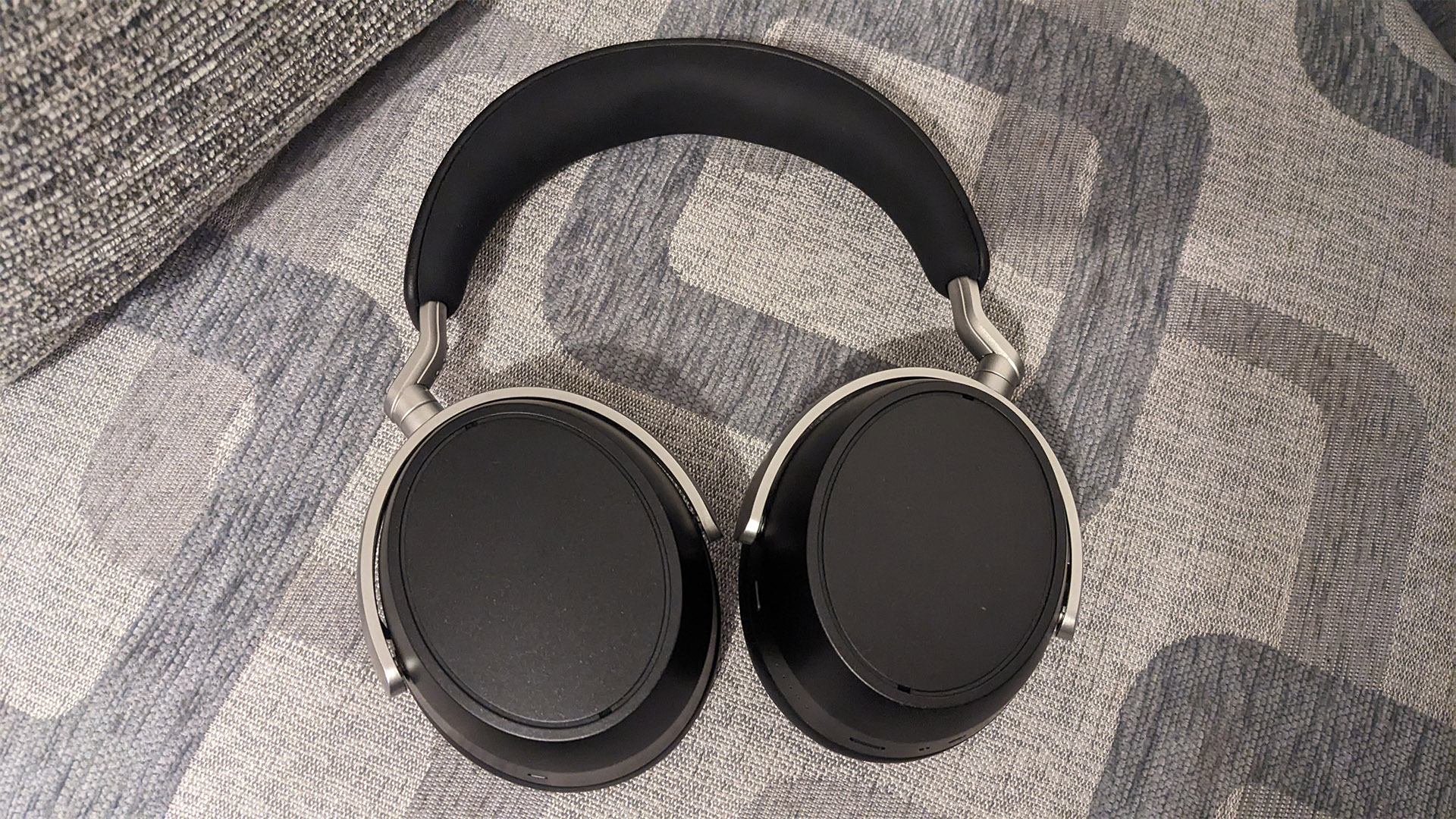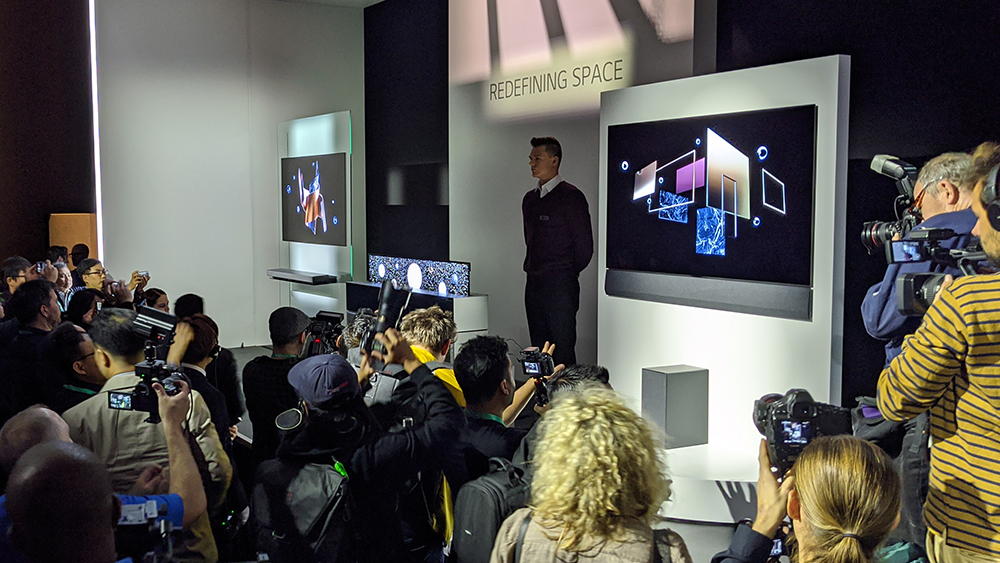
LG kicked-off the main day of press conferences at CES 2020 with an event focused on AI-driven upgrades to its wide ecosystem of smart products and the company's 2020 range of rollable, 4K, 8K and OLED TVs.
As tempting as it was to round-up LG's super-smart washing machines and fridges – "next-generation laundry" and "craft ice spheres" – we've kept our LG CES 2020 round-up on all things AV. And this year, that meant TV, TV and more TV.
ThinQ AI gets serious
LG went in deep on AI for the main chunk of the press conference, so it would be remiss of us not to mention it. LG ThinQ remains front and centre for everything LG wants to do in consumer technology, with the next-generation of AI promising to move on from the simple call and response of voice control we have now to personalised AI that understands your actions, learns from them and makes recommendations and adjustments to your smart products as a result.
"Collective intelligence" of an interconnected system is crucial to making these advances, meaning, conveniently, that you really ought to have an ecosystem of compatible smart products to reap the futuristic benefits. LG illustrated the potential advances with a series of videos showing more and more advanced interactions with the company's CLOi robot, which would ultimately automatically adjust the temperature of your home, your shopping order, your music choices and more, based on what it had learned from your behaviour. This Skynet-esque future is just a few years away, according to LG.
Big on OLED, smaller in screen size
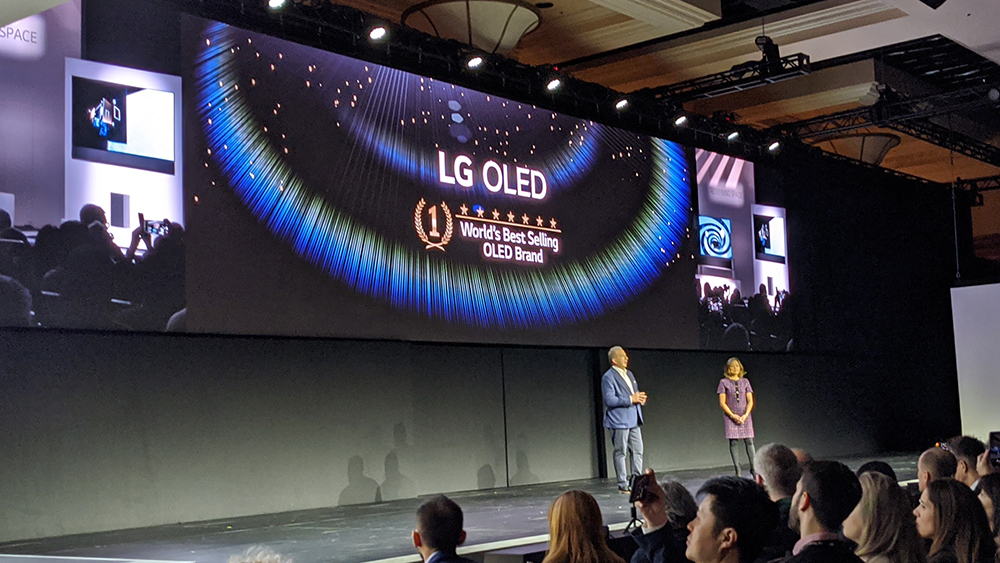
Following a brief interlude to focus on white goods, LG marched head first into TV tech. And the company led with OLED, proudly declaring LG as "the world's best-selling OLED brand". Naturally there was no hint of the idea that OLED technology may have peaked, rather LG wanted to cement its place as the number one name in OLED as it announced 2020 OLED line-up.
The big news is a new 48-inch LG OLED for 2020, the smallest size yet for an OLED screen. The company's famous rollable OLED was back again but this time it came with the promise that it would be released and go on sale this year.
Also new is the LG G10 Gallery Series OLED, a 20mm slim slice of 65-inch screen, designed to sit completely flush on the wall – "no gap, no shadow" – without the need for a separate connection box (is that a dig at the Samsung One Connect Box?).
The latest hi-fi, home cinema and tech news, reviews, buying advice and deals, direct to your inbox.
Real 8K
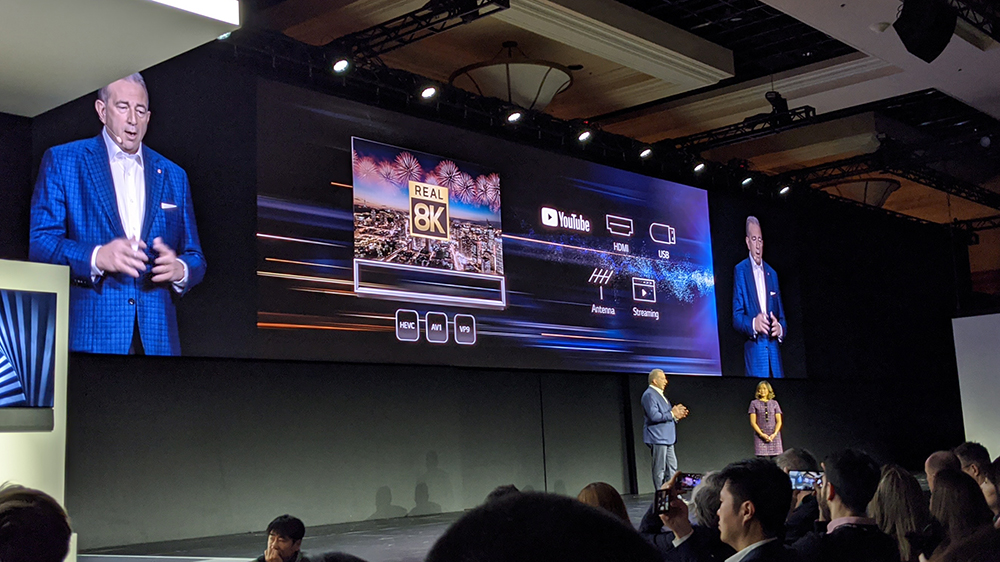
If a rollable OLED no longer gets your pulse racing, then how about an 8K TV? 8K is already a theme here at CES 2020, despite some obvious and not-so-obvious 8K issues, and not only is there a whole range of LG 8K TVs for 2020, the company is calling its models, "Real 8K". After all, nobody does a format war or tech battle like the consumer electronics industry.
LG is aiming to differentiate its 8K TVs based on "contrast modulation". LG states that, "The International Committee for Display Metrology (ICDM) states that Contrast Modulation (CM), rather than pixel count, most accurately and adequately measures true display resolution and recommends that manufacturers adopt CM when describing resolution quality."
So LG says all its 8K TVs deliver a CM of at least 90% and have the new CTA 8K UHD logo to prove it – "the only one that matters". This is a none-too-veiled sideswipe at Samsung, again, due to the fact Samsung has announced its own 8K certification. Confused? Or maybe just a bit annoyed? We don't blame you. Either way, look out for "CM" becoming a thing on 8K TVs.
- LG's 2020 8K TV line-up revealed, includes 65-inch models
- LG 'Real 8K TVs' for 2020 are first to receive industry’s 8K certification
Dolby Vision IQ
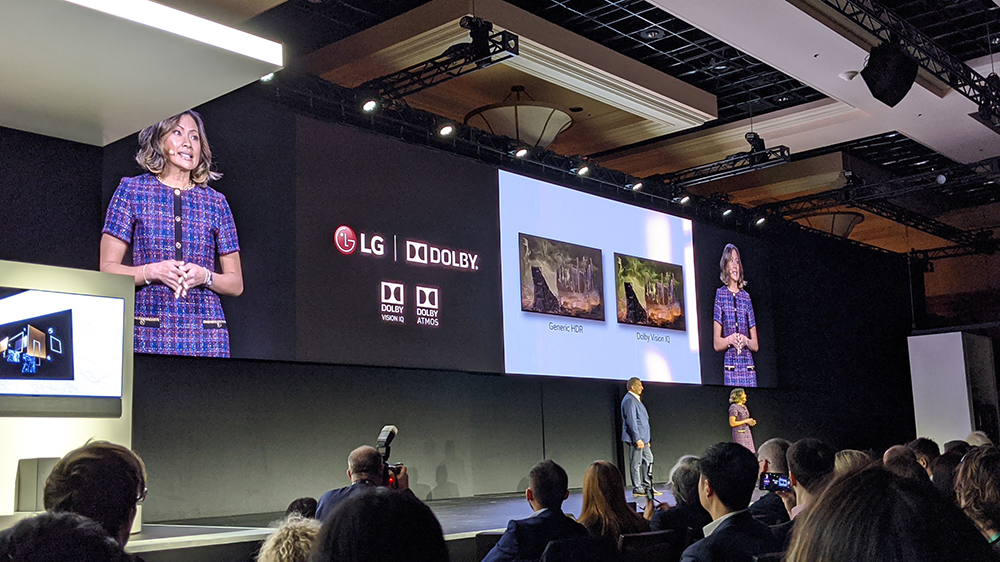
And if that wasn't enough competing acronyms for you, how about some Dolby Vision IQ? "Beyond HDR" is how described this updated version of Dolby Vision. Remember, Dolby Vision itself is a version of HDR picture processing, and of course sits alongside a number of existing HDR modes already, such as HDR10, HDR10+, HLG.
Dolby Vision IQ uses Dolby Vision dynamic metadata and light sensors inside the TV to "deliver a perfect picture in your room at every moment", optimising the HDR picture yet further based on the content and ambient light conditions in your room. If you switch from bright live sport, to a darker TV series, the TV will adjust accordingly for the optimum picture.
It certainly sounds good, and we're all for picture advancements, but it remains to be seen whether another type of HDR proves beneficial or more confusing. We'll wait to see how Dolby Vision IQ pans out in reality.
Gaming or movies, as intended
LG made a play for gamers in its press conference, announcing a Gaming Mode developed in conjunction with Nvidia G-Sync which aims to deliver games with low latency, no artefacts, no tearing, high refresh rates and all that good stuff. This is all made possible, we're told, by the AI ThinQ processor and OLED's self-lighting pixels.
Not content with delivering games how they're intended to be played, LG is also happy for you to turn off any and all picture processing and see films the way the should be seen with Filmmaker Mode. Backed by Christopher Nolan and Christopher McQuarrie, Filmmaker Mode promises to prevent people suffering through motion smoothing - the bane of Tom Cruise's existence. Filmmaker Mode will be on all LG's 2020 TVs.
And of course, despite a certain irony in this following a cavalcade of AI picture processing developments, we're all for this. After all, if you can't see movies and games how they were meant to be seen, what's the point in a shiny new TV?

Joe is the Content Director for What Hi-Fi? and Future’s Product Testing, having previously been the Global Editor-in-Chief of What Hi-Fi?. He has worked on What Hi-Fi? across the print magazine and website for almost 20 years, writing news, reviews and features on everything from turntables to TVs, headphones to hi-fi separates. He has covered product launch events across the world, from Apple to Technics, Sony and Samsung; reported from CES, the Bristol Show, and Munich High End for many years; and written for sites such as the BBC, Stuff and The Guardian. In his spare time, he enjoys expanding his vinyl collection and cycling (not at the same time).
